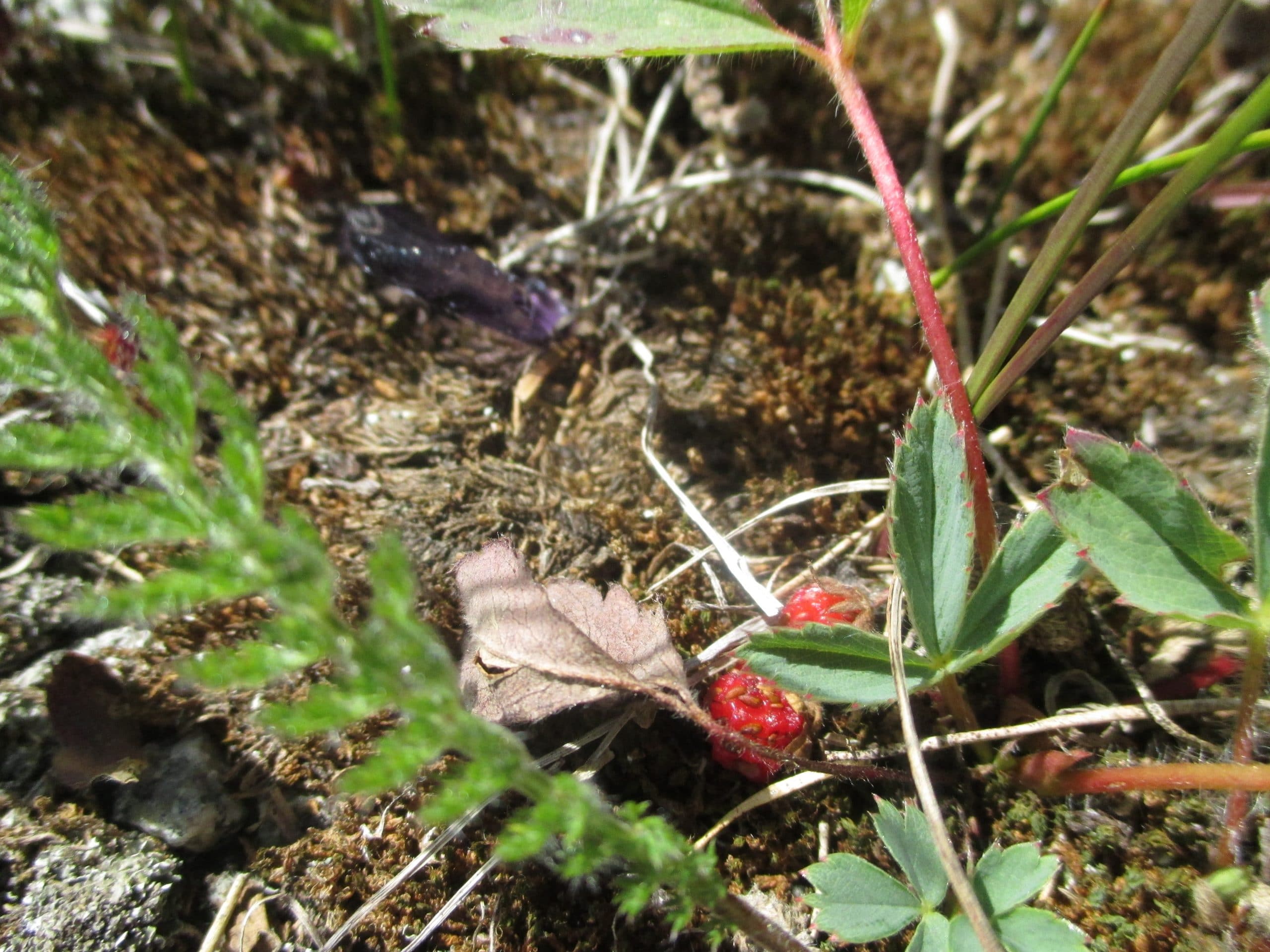This first appeared on Counterpunch for September 15, 2009, under the title “Up in Wood Smoke.”
Residents of Boulder, Colorado take pride in the city’s livability. The town has won “more accolades than any other city in America for its recreation, culture, health, business climate, and overall quality of life.” It has been voted “Number One Best Place to Live” and “Best Overall Place to Live”; it is among “The Best Small Cities” and the “Top Ten Places to Retire”; it is “Number Four Heart Healthiest City”; it is in the “Top Ten of World’s Greener Cities”; it is a city that is “Making a Difference in the Environment”; and it is in the “Top 20 Greenest Spots in the Country.” We have lived in Boulder for eight months, and we can attest that it is beautiful. Unfortunately, the city’s “accolades” neglect a dirty little secret.
We moved to Boulder from Tucson, Arizona after one of us underwent major surgery, radiation, and chemotherapy. We have always been concerned about the environment, but such a serious illness made us more so. Tucson was just too polluted, congested, hot, and stressful to stay. So we looked for a place that was the “anti-Tucson.” Boulder seemed to fill the bill. We could decompress from months of trauma and begin to rebuild our lives.
We rented a downtown apartment in February, on the top floor of an office building.
It was removed enough from the main street to be quiet, a bonus in a college town. From our bedroom window we could see Mt. Sanitas; from our balcony we could admire the spectacular western sky over the eastern plains. If we turned right from the building’s front doors, we could walk to steep and challenging hiking trails that led up into the foothills of the Rocky Mountains; if we turned left, we could enjoy the shops, bookstores, restaurants, and street musicians of the traffic-free Pearl Street Mall. It looked like we had found the perfect place to heal.
The first sign that something was amiss happened a few days after we signed our lease. We noticed a plume of black smoke coming from a chimney on a roof directly below our patio. It turned out that we were next door to a restaurant that used a wood-burning oven, something that the landlord failed to tell us. A few months later, a second wood-burning restaurant opened, with its chimneys on an adjacent roof.
Our dream apartment turned into a nightmare. Every day, beginning in early morning, smoke from the ovens rises in steady plumes above the chimneys. This goes on, with the occasional break, for nearly twelve hours, seven days a week. The smell is so obnoxious that we cannot open windows or use our balcony, and it is so strong that it often permeates our living quarters. Our noses are runny; our throats are sore and scratchy; and we have a hard time breathing.
The two restaurants we have come to despise are named The Kitchen and Salt. Like many businesses in Boulder and quite a few other restaurants, these eateries claim to reflect Boulder’s refined environmental consciousness. The Kitchen says on its website: “The Kitchen believes in protecting our environment. Wind power provides 100 percent of the restaurant’s electricity and we recycle or reuse nearly 100 percent of our discards. All of our paper products and straws are biodegradable. We give the remaining uncooked food and open bottles of wine to our staff at the end of each shift and all of our food discards are composted and often find their way back to the farms they came from.” This eatery has garnered many awards and citations for its commitment to the environment: “West’s Greenest Restaurant” (Sunset magazine, 2008) and Number 6 in “Top 10 Best Eco-friendly Restaurants” (Bon Appetit, 2008). It prominently displays a PACE decal in its window (Boulder County’s Partners for a Clean Environment).
Salt has joined the environmental bandwagon. One reviewer gushed about Salt’s love for Mother Earth: “. . . Salt will walk the sustainability talk,” he says, “. . . [doing] all the little things The Kitch[en] does so well.” Salt’s chef described himself to another reviewer as “Johnny Local,” referring to his use of local organic farm produce. “We’re doing fun, affordable, simple, seasonal food and supporting those who do right by Mother Nature. . . . We’re taking our food away from corporate greed and making good choices by buying as much as we can on a local level.” (This is amusing given that, as one blogger put it, “word on the street is that Salt’s . . .well-established Boulder area chef, and his team of investors, put in a million dollars in their renovation . . . .”—none of this in search of profit, we are to suppose).
While restaurant wood smoke has damaged our quality of life, it is doing much more than this. It is, in fact, a definite and well-established danger to the public’s health. A few examples will suffice. First, wood smoke contains numerous toxic substances, many of which are also found in tobacco smoke. A few of these are chlorinated dioxin, carbon monoxide, methane, volatile organic compounds, nitrogen oxides, and fine particulate matter. Second, some wood smoke components are known carcinogens, including benzene, formaldehyde, and toluene. A google search of “wood smoke and cancer” yields thousands of entries. Third, wood smoke is definitely correlated with many other diseases and health problems, such as asthma, allergies, Chronic Obstructive Pulmonary Disease (COPD), high blood pressure, strokes, and heart attacks, just to name a few. Children, the elderly, and people with existing lung and other diseases are especially susceptible to the harm done by wood smoke. Wood smoke “should be actively avoided” by such persons, according to the American Lung Association. Fourth, exposure to wood smoke can weaken the immune system, making us more susceptible to disease and weakening our ability to recover from both diseases and treatments such as cancer therapies.
Irony and hypocrisy abound here. These restaurants do not allow smoking. Yet, wood smoke is more dangerous to health than cigarette smoke; it penetrates deeply into the lungs and takes more time to dissipate in the air. It is chemically active in the body forty times longer than tobacco smoke. One study showed that a restaurant that burned wood but was nonsmoking was similar in terms of pollution to a restaurant without wood-burning equipment but which allowed smoking. The chefs claim to be concerned with the environment; one local reviewer has called businesspersons like them “greenpreneurs.” Yet, their kitchen equipment spews dangerous particulate matter into the air hour after hour, year-round (and we won’t even go into how the health of the kitchen workers and patrons is affected by the wood-burning ovens, grills, and rotisseries, or the sources of all those truckloads of wood). The owner of the building that houses one of the restaurants is a rich and generous philanthropist who donated millions of dollars for the building of a first-class cancer center in Boulder. How is it that he can condone the releasing of carcinogenic smoke into the town’s atmosphere? We spoke with him, and he seemed oblivious to the problem.
We know that, other things equal, wood smoke raises the mortality rate. As researcher Peter Montague tells us, “To summarize bluntly, any increase in fine particles in the atmosphere kills someone. The victims remain nameless, but they have been deprived of life all the same.” Tens of thousands of people in the United States die every year from particulate pollution, to which wood smoke is an important contributor. Worldwide, the World Heath Organization estimates that there are nearly three million premature deaths worldwide from exposure to wood smoke.
We have complained to public officials in Boulder, and while some have not even bothered to return our calls (one is the city’s Environmental Affairs Manager), others have done what they could. One agency asked The Kitchen to clean its word-burning equipment so that the emitted smoke met the city’s opacity requirement. However, in the absence of a prohibition of the use of wood-burning devices, something that England enacted in 1956, Boulder cannot prevent their use, which means that heath-debilitating smoke will continue to permeate the city’s air. Besides The Kitchen and Salt, there are at least half a dozen more restaurants that use wood-burning equipment, all in an area about one mile square. We have begun to publicize the dangers as best we can and will continue to do so, in the hope that sooner or later citizen complaints will generate official action.
Peasants in poor countries cut down trees for wood fires to heat their homes and cook their food. This does tremendous damage to the environment. The peasants suffer disproportionately from the smoke-induced health problems described above; there is even a name for one infection common among them–“hut lung”). The deforestation that provides the wood makes their surroundings more susceptible to floods, mudslides, and drought. However, those who cut down the trees and burn the wood are desperately poor and have no real choice in the matter. Our restaurateurs, on the other hand, do have perfectly viable and probably cheaper choices. They do not have to use wood-burning appliances. We cannot think of a single justification for them. We doubt that many patrons could tell the wood-smoked food from any other. And even supposing that food cooked with a wood fire tasted marginally better, so what? The taste differential cannot possibly justify using wood when there are such obvious health hazards. What excuse is there for Boulder or any other city to continue to allow restaurants to employ this dirty, dangerous, and unnecessary cooking practice?
Karen Korenoski and Michael Yates live in Boulder. They can be reached at mikedjyates@msn.com. The health information in this essay is taken from the many sources listed on the excellent burning issues website.
Addendum: Reader Comments
Whenever you write an article and give readers an easy way to contact you, you have to be prepared for the consequences. You may get no responses, and this is depressing. You may get replies from the crackpots and deranged, and this can be frightening. You may get corrections, and this can be humbling. If you are lucky, you will get praise, and this is rewarding to the ego. If you are really fortunate, you will get critical comments and dialogue, which you can build upon to deepen your understanding.
This article struck disparate chords. Most letters were favorable. It was heartening to hear from people who said that they hadn’t thought about this problem before but would now. Several long-time wood smoke activists told us about their efforts, offered support and advice, and linked our essay to their web sites or posted it directly. Invariably the supportive writers expressed concern about our health and understood that the problem of wood smoke was not ours alone. They saw the hypocrisy of the restaurant owners.
“Sorry to read about you problems. . . The hypocrisy is pretty blatant in the cases of these two self-proclaimed paragons of environmental virtue restaurants ”
“I was sorry to hear that your idyll in Boulder was smoked out. I guess green is the new natural when it comes to marketing crap.”
“We feel you anger and frustration and wish you only the best.”
“One has to wonder what our municipal leaders are thinking when they don’t ban wood burning of all kinds in residential areas.”
But then there were the emails with much harsher messages. It is not uncommon in the United States, where the notion that we are responsible for whatever our own circumstances happen to be, that people believe that those who protest something must themselves be somehow at fault.
“The proximity of your apartment to the chimney sounds like the main problem that you face. Some people do a thorough inspection of neighbors before signing a lease to see about things like dogs, power lines, crack houses, noisy children, strip clubs, bars with live music, construction zones, road noise and on and on. Clearly you failed to notice the chimney. Most unfortunate.”
“When my wife and I are sitting around a campfire and the smoke blows directly upon us, we move.”
And this show stopper:
I’ve recently read your story, and I can’t help but break out in outright laughter. You people are completely pathetic. MOVE! Your candy ass belly aching underlines the main problem in this country. You expect the whole world to revolve around your personal wants and needs. You move from one town to another, then grouch about city life. By all means, give us a list of how you “need” things to be, and we will completely revamp the WHOLE WORLD to your suiting. YOU want all your modern conveniences, but take no responsibility in how their made. You make me sick. Grab a piece of drift wood, and push yourself out into the Pacific. Do the world a favor.
You’re just another example of good medical treatments gone to waste.
Yes, we should just kill ourselves.
We plan to continue our efforts to get the use of wood-burning equipment by restaurants banned in Boulder. And when we move on, we intend to raise hell wherever we end up.









This is one of the great things about the internet…just the ability to share opinions and facts. Remember before the internet? Communication was fairly limited…that can’t be good right?
Hi Michael,
Thanks on briefing us what happened. Here in Amsterdam, The Netherlands where I live, producing such amounts of smoke is simply illegal in a residential area. If you did that kind of thing here, you would get in trouble with the council authorities, because of violation of environment laws, and if you persisted, you could be fined and your business license could in principle be revoked.
I tried for a bit of blog in NYT on “socialism in 2009” which you may find of interest (reproduced here):
155. September 19, 2009 6:45 pm Link
From a European perspective, as a thumbnail sketch, socialism in 2009 is essentially about the question of which forms of organisation can ensure that cooperation between people can prevail over competition – such that all individuals and members of society, not just privileged people, can lead constructive lives and reach their potential. The argument is that in preceding decades, cooperation and competition have become very seriously misaligned in every sphere of society, giving rise to very unhealthy forms of cooperation and very unhealthy forms of competition. Cooperation and competition can obviously be voluntary and free, or forced directly and coerced by circumstances. An effect of the misalignment is that the relationship between “rights” and “duties” has also become very misaligned in society. There can be no rights without duties (social responsibilities, social obligations) and no duties without rights (including individual freedoms). These rights and duties can however obviously also be voluntary negotiated or forced on people, and they can be unequally and irrationally distributed. In this situation socialists aim to act culturally and politically to achieve progress in the matters of liberty, social equality and social solidarity. In the opinion of socialists, individuals are not simply isolated atoms in a larger whole, but can sustain themselves as individuals only by being socially related. The overall objective is to work for a progressive change in the relationship between individuals and the society of which they are part, such that society functions better, not just for some, but for all. Socialism attracts people from all strata of society who share these concerns and seek to give them a definite form, through doing something about them. However, it attracts especially people who in one way or another have felt oppressed, injured or exploited by society as it is, and who feel they cannot succeed except by both changing themselves, and by changing social circumstances in one process, i.e. by working for social change in some way in line with the mentioned principles. This means they are prepared to turn some private troubles into public issues, with the argument that these private or individual troubles cannot be resolved unless they are treated as public issues, as matters that should be of social concern, and tackled collectively. Inversely, they aim to make public troubles their individual concern. However, there is no consensus among all socialists about policy, and there are many different strategies being pursued. That is to say, socialists themselves are also afflicted with the problems mentioned above, such that cooperation between them is often not so easy to achieve. Sometimes persuasion influences them to cooperate, but it could also be that the situation forces them to cooperate, because it is realised that this is the only way that people are going to make progress.
— Jurriaan Bendien http://roomfordebate.blogs.nytimes.com/2009/09/18/what-socialism-means-to-the-masses/?hp&apage=7
I can most definitely understand your point about the smoke blowing into your residence. This is something that, in my opinion, you might deal with in a civil court. There might be a very simple solution whereby a much taller chimney is installed at the cost of the restauranteur. Such a chimney might dissipate the smoke at a level far above your residence and thus make it so you could live together in peace. The situation is complicated; wood smoke does definitively impart a distinctive taste to food that cannot be reproduced in any other way, and yes, there are many people in Boulder with palettes that are refined enough to tell. That being said, it is also not good for human health. However, it is not the same as cigarette smoke. You cannot become addicted to wood smoke, and wood smoke doesn’t kill people who spend so much money on it that they live in hotel rooms and continue burning it through holes in their trachea’s. The consequences of woodsmoke are different for society. In our state of Colorado, many people (in some areas over %50) burn wood for their primary heating source. So we’re not just talking about “peasants in other countries” here. Maybe wherever you’re from everybody has the luxury of being connected to the grid if they want, but here that simply isn’t economically feasible for many semi-isolated mountain dwellers. There are still homes in boulder that do not have heaters installed, and there are still people even here in town who use wood during the winter. So you would be requiring people who are already some of our poorest residents to essentially purchase expensive new heating units that they can’t afford, or freeze to death. Freezing to death isn’t an option, and no law enforcement officer would ever feel alright enforcing, when it came down to it in the winter, such a harsh law here in town. This means that it’s kind of a moot point. Finally, I would like to say that some of my favorite foods are wood-fired. Barbecue is wood-fired. Without wood, barbecue is just oven baked meat rubbed in spices. As someone originally from Kansas City, I have to say emphatically; it is not the same. You cannot have certain foods without wood smoke. Period. Therefore, to outlaw wood smoke would be essentially outlawing a whole culture of gastronomy that everyone can take pride in as uniquely American. Barbecue is perhaps the definitive American food. In conclusion, I posit you this; What would fourth of July be without barbecue? Without barbecue, we are culturally poorer as a nation.
Joe, I think you made a very nice point about the necessity of wood for our everyday lives, and I would also like to add that wood is a carbon neutral fuel. This means that throughout a tree’s lifetime, it will use up the same amount of carbon dioxide that it emits while burning. There is no “greenhouse gas effect.” I do not mean to be rude, but to think that living on the grid is cleaner and more environmentally friendly than burning wood is completely absurd. In most states, over 75% of grid electricity comes from coal. Coal burning power plants account for about 80% of our nation’s electricity needs. The other 19% comes from nuclear, natural gas etc, and a measly 1% comes from renewable energy. The majority of the U.S.’s carbon dioxide emissions come from coal. Coal is not clean, as you can see. In short, living on the grid is not clean at all, contrary to what this article is attempting to make us believe. I do not say this in order that I appear smarter than anyone; rather, I hope that through sharing this knowledge we can come to a greater enlightenment as a society. I am not an advocate for “green” energy; also, I am not an advocate for destroying our earth with fossil fuels. Rather, I am a realist, and I assure you, it would be my genuine pleasure to discuss this subject at length with any of you, including the author of this article. I really hope that I do not come across as one of those “hate comment” people, and if I have, I am sorry to offended you, but I will not apologize for sharing relevant factual information for the betterment of society. I look forward to some great discussions! -Michael